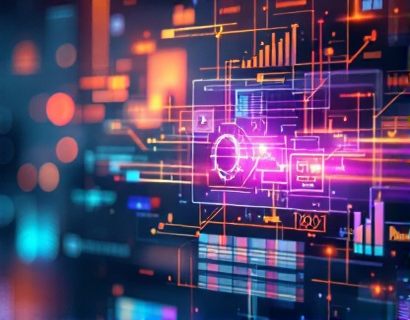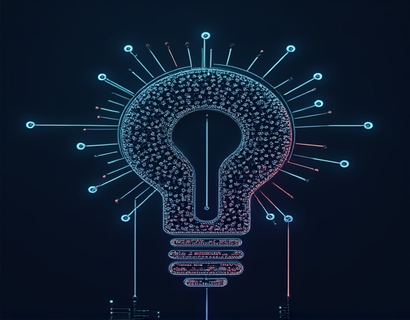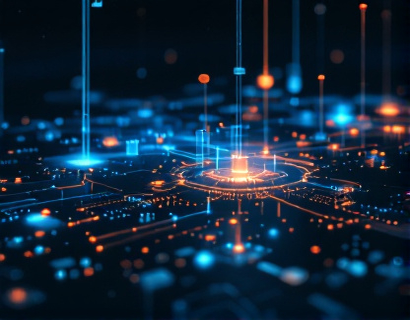AI Chat Interface: Your Intelligent Guide to Lawyer Services and Legal Knowledge
The integration of Artificial Intelligence in the legal sector has ushered in a new era of accessibility and efficiency for both legal professionals and individuals seeking legal advice. This innovative approach leverages intelligent AI technology to create a seamless interface that connects users to essential legal information, simplifying the often daunting process of finding the right lawyer and understanding complex legal concepts. The goal is to ensure that users can make informed and confident decisions, whether they are individuals navigating personal legal matters or professionals requiring expert legal guidance for their businesses.
The Need for AI in Legal Services
The legal field is notoriously complex, with intricate laws and regulations that vary by jurisdiction and industry. Traditional methods of seeking legal advice often involve lengthy consultations, high costs, and a steep learning curve for understanding legal jargon. The introduction of AI chat interfaces addresses these challenges by providing a user-friendly platform that offers immediate access to legal insights and connections to qualified legal professionals. This technology not only streamlines the process but also democratizes access to legal knowledge, making it more approachable for a broader audience.
How AI Chat Interfaces Work
At the core of these platforms is advanced natural language processing (NLP) technology, which enables the AI to understand and interpret user queries in natural language. When a user interacts with the chat interface, the AI analyzes the input, retrieves relevant information from a vast database of legal knowledge, and provides concise, accurate responses. This process is further enhanced by machine learning algorithms that continuously improve the AI's ability to understand and respond to user needs based on past interactions.
The AI chat interface is designed to handle a wide range of queries, from basic legal questions to more complex scenarios requiring detailed analysis. For instance, a user seeking advice on contract law can describe their situation, and the AI will provide a summary of key points, potential risks, and suggested actions. This immediate access to tailored legal insights empowers users to make informed decisions without the need for extensive legal research.
Finding the Right Lawyer
One of the most significant benefits of AI chat interfaces in the legal sector is their ability to assist users in finding the right lawyer for their specific needs. Traditional methods of lawyer selection often involve referrals, word of mouth, and extensive research, which can be time-consuming and impractical. With an AI-powered chat interface, users can input details about their legal issue, preferences, and requirements, and the AI will generate a list of recommended lawyers based on criteria such as expertise, location, and client reviews.
The AI considers various factors to ensure the recommendations are relevant and suitable. For example, if a user is dealing with a family law matter, the AI will prioritize lawyers with a proven track record in family law cases, located in the user's area, and with positive feedback from previous clients. This personalized approach not only saves time but also increases the likelihood of finding a lawyer who is the best fit for the user's specific situation.
Understanding Complex Legal Concepts
Legal concepts can be overwhelmingly complex, making it challenging for non-lawyers to grasp the nuances involved in their cases. AI chat interfaces simplify this by breaking down intricate legal terms and principles into understandable language. Users can ask questions about specific legal doctrines, statutes, or case law, and the AI will provide clear explanations along with relevant examples. This educational aspect of the platform helps demystify the legal process, enabling users to better understand their rights and obligations.
For instance, a user concerned about intellectual property law can ask the AI to explain the differences between patents, trademarks, and copyrights. The AI will provide a concise overview of each type of protection, highlighting key differences and use cases. This level of clarity is invaluable, especially for individuals and small businesses that may not have the resources to hire a legal expert for basic educational purposes.
Enhancing Legal Decision-Making
The ultimate goal of AI chat interfaces in the legal field is to enhance the decision-making process for users. By providing timely, accurate, and relevant legal information, these platforms empower users to take control of their legal matters. Whether it's drafting a contract, understanding the implications of a legal agreement, or navigating the court process, the AI offers guidance that helps users make informed choices.
For professionals, this means that businesses can address legal issues more efficiently, reducing the risk of costly mistakes and ensuring compliance with relevant laws and regulations. For individuals, it means having the confidence to handle personal legal matters, such as estate planning, divorce proceedings, or consumer disputes, with a clearer understanding of the legal landscape.
Building Trust and Transparency
Trust is a critical component in the lawyer-client relationship, and AI chat interfaces can play a significant role in building this trust. By providing transparent and unbiased information, these platforms help users feel more confident in their legal decisions. The AI's ability to present multiple perspectives and potential outcomes without personal bias ensures that users have a comprehensive view of their options.
Additionally, the chat interface can offer insights into the lawyer's background, specialization, and success rate, allowing users to make more informed decisions when selecting a legal representative. This level of transparency fosters a more trusting and collaborative relationship between users and legal professionals.
Challenges and Considerations
While AI chat interfaces offer numerous benefits, there are also challenges and considerations to address. One key issue is the accuracy and reliability of the information provided. Legal laws and precedents can change rapidly, and the AI must be regularly updated to reflect these changes. Continuous monitoring and updating of the database are essential to maintain the platform's credibility and usefulness.
Another consideration is the ethical use of AI in legal contexts. Ensuring that the AI does not provide advice that could be misinterpreted or lead to adverse outcomes is crucial. Clear disclaimers and guidelines should be in place to inform users about the limitations of AI-generated advice and the importance of consulting a human lawyer for final decisions.
Future Prospects
The integration of AI in legal services is still in its early stages, but the potential for growth and innovation is vast. As AI technology continues to advance, we can expect more sophisticated chat interfaces that not only provide information but also assist in legal document preparation, negotiation, and even court advocacy. The goal is to create a comprehensive legal support system that complements the work of human lawyers, making the legal process more accessible and efficient for everyone.
Moreover, the collaboration between AI and legal professionals can lead to new models of legal practice, where AI handles routine and repetitive tasks, allowing lawyers to focus on more complex and strategic aspects of their work. This synergy can enhance the overall quality of legal services and improve client satisfaction.
Conclusion
The AI chat interface represents a significant leap forward in making legal services more accessible, understandable, and user-friendly. By leveraging advanced technology, these platforms bridge the gap between complex legal concepts and the general public, empowering individuals and professionals to navigate the legal landscape with confidence. As the legal industry continues to embrace AI, the future looks promising for a more informed, efficient, and equitable legal system.










































